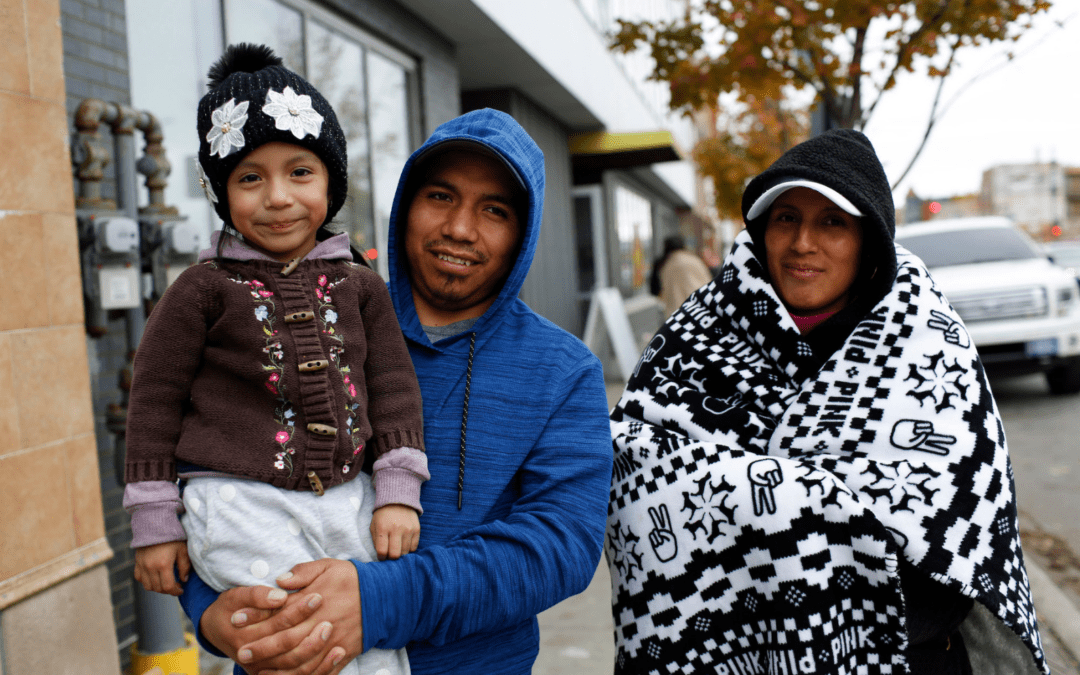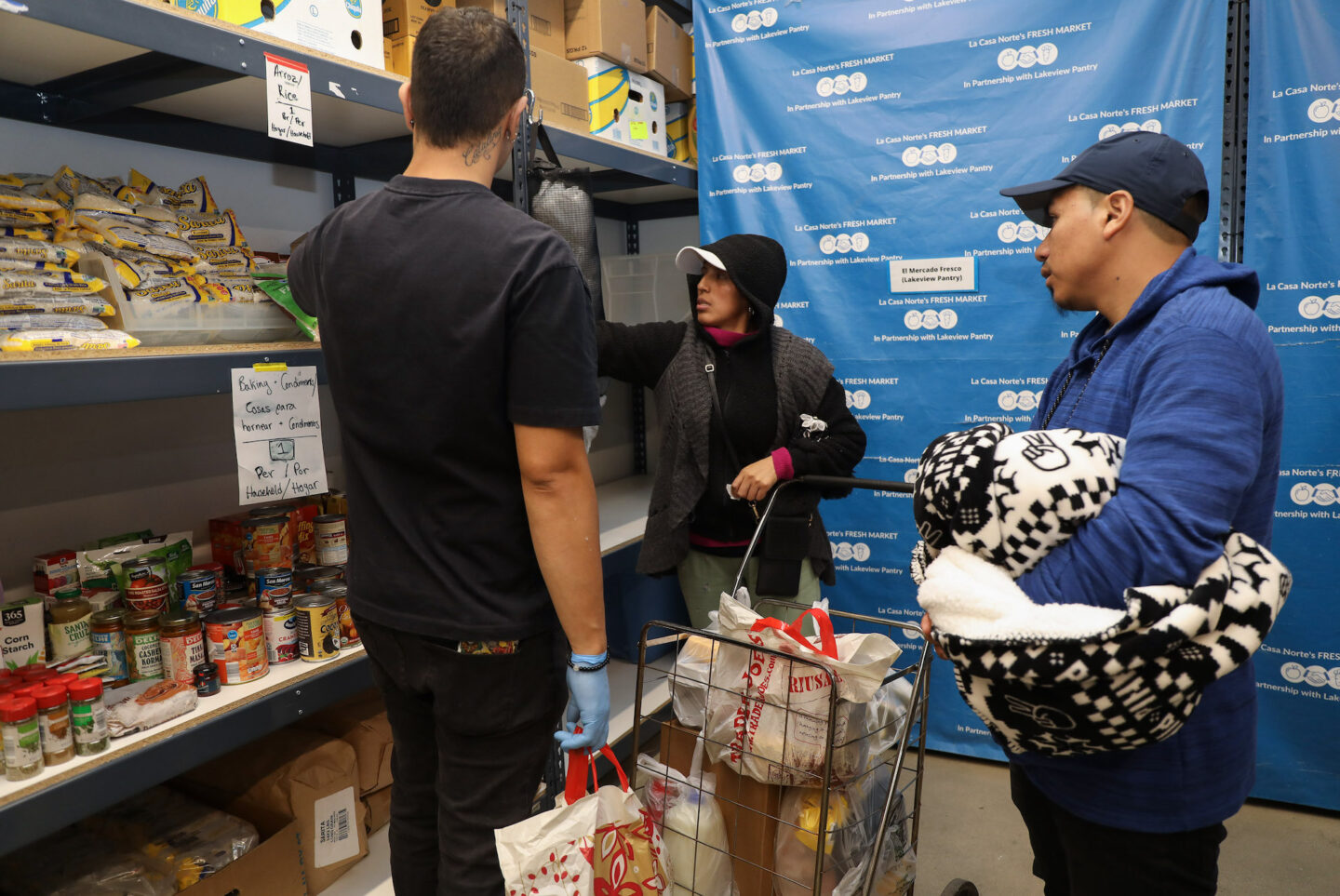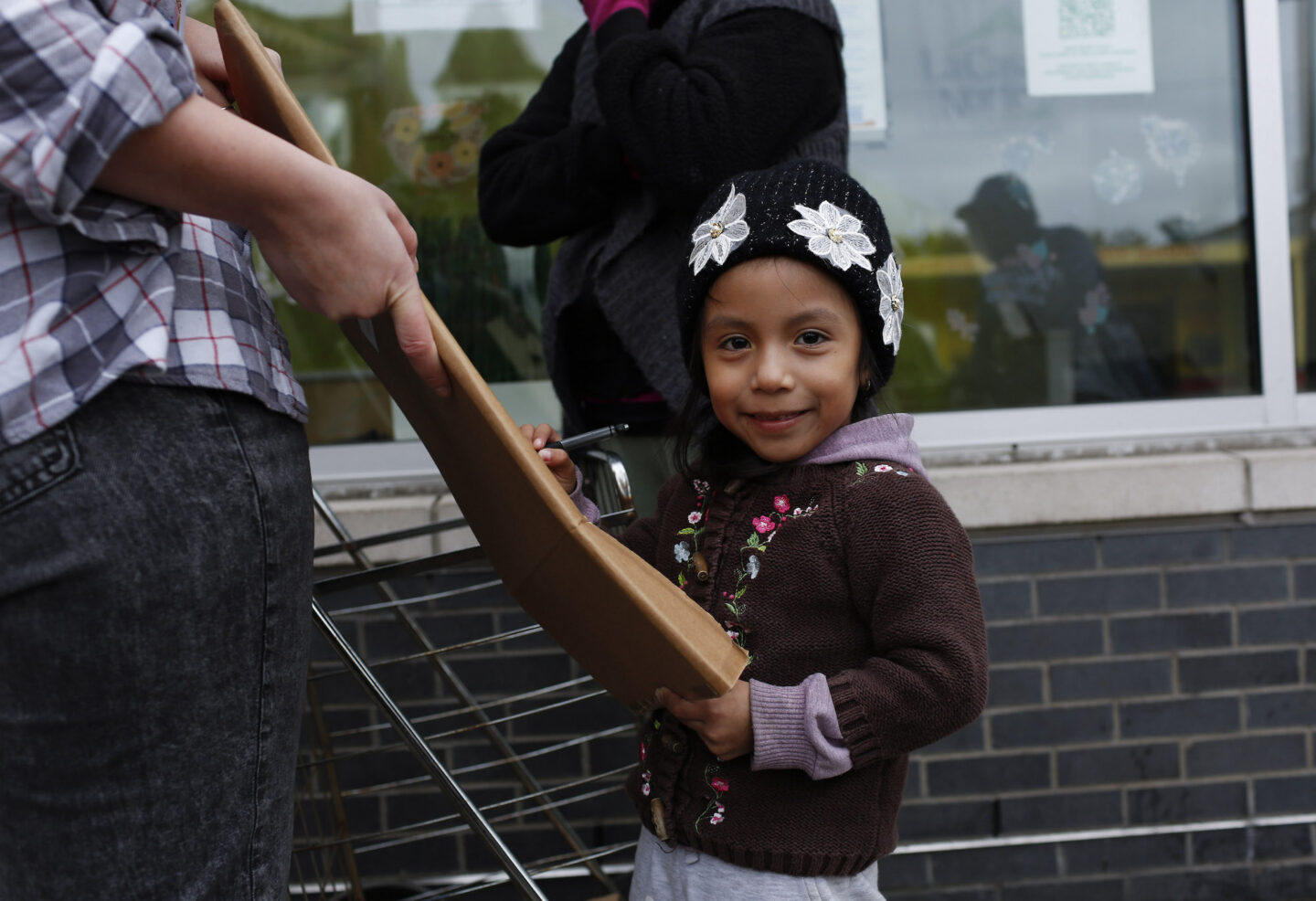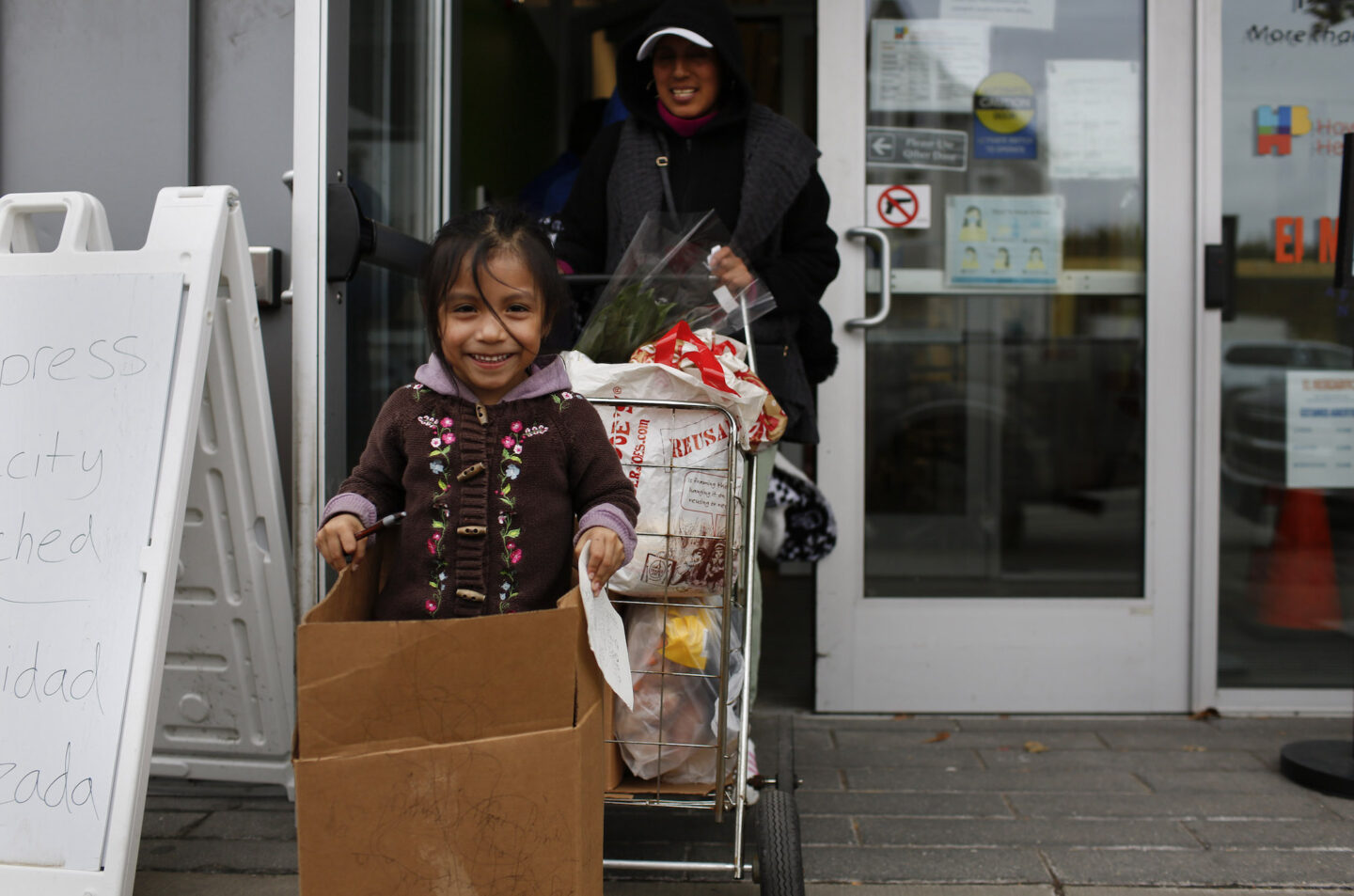(All photos taken by photographer Abel Uribe for Nourishing Hope.)
Around Christmas time, Cristian Ante used to string lights on a tree outside his rented apartment in Ecuador.
This year, there’s only one thing he’s hoping to accomplish.
“With God’s blessing, we’ll find work and be able to provide for our daughters,” said Ante, 26, father of two girls, ages 4 and 10.
Ante and his family are among the more than 25,000 migrants and asylum seekers who have arrived in Chicago since August 31, 2022, per the city’s data. It’s been perhaps the most urgent and defining story of the year in Chicago, as the city and its vast ecosystem of frontline social service organizations have grappled with how to best serve the new arrivals, while also providing essential services to longtime Chicagoans in need of help.
At Nourishing Hope, we’re proud to serve any Chicagoan in need, including those who are new to our city.
On a recent afternoon, Ante and his partner, Elsa Chaluisa, reflected on their journey to Chicago as they waited to select their groceries at El Mercadito, Nourishing Hope’s food pantry in Humboldt Park. Ante also met with one of Nourishing Hope’s social service case managers, who outlined other resources available to the young family.
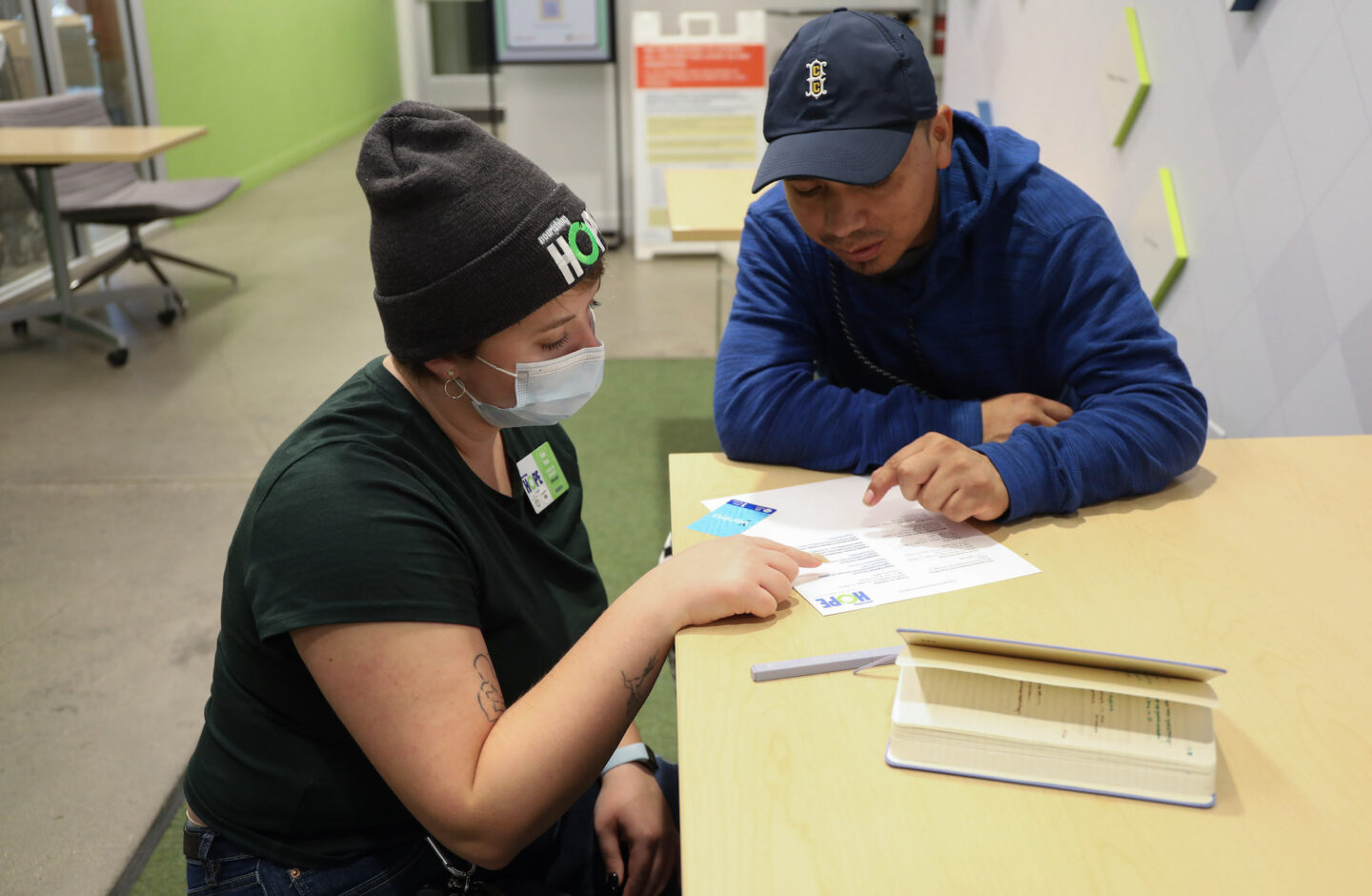
Katie Himes, a bilingual case manager at Nourishing Hope, discusses available community resources with Cristian.
Their 4-year-old daughter Renata, a playful girl with expressive brown eyes, laughed and drew pictures to the entertainment of others nearby.
Like so many migrants coming from South American countries, such as Venezuela, Colombia and Ecuador, the Ecuadorian family of four traversed the dangerous Darién Gap — a treacherous route of more than 60 miles between the border of Panama and Colombia.
There are no roads in the Darién Gap. There’s only dense rainforest, steep and muddy embankments, and vast swampland. Ante and his family had a guide, he said, but very little food. They drank water from the river and got sick.
Ante carried both daughters at times, he said, slipping in the mud frequently and losing his shoes.
“At first, people told us about people dying in the jungle and we didn’t believe them,” Ante said.
They wept, he said, when they saw evidence that it was true.
Despite such horrors, they left Ecuador because it was becoming increasingly violent and unsafe in their neighborhood.
“Fue tan, tan peligroso,” Chaluisa said. “It was so, so dangerous.”
There was also very little opportunity for work and the pay was abysmal, she said. Chaluisa worked in a factory, cutting broccoli for 16-hour shifts.
“I worked six or seven days each week, from 2 p.m. until 6 a.m. the following morning,” she said. “It was terrible… terrible.”
When they finally arrived in Chicago, just about a month ago, they arrived with only the clothes on their backs. Now, they’re staying in a crowded three-bedroom apartment with other family members, and sleeping on a layer of cardboard on the floor.
Despite the cramped quarters, Chaluisa said she feels lucky that they have family in Chicago and a warm place to stay.
“Estámos seguros aquí, finalmente,” she said. “We’re safe here, finally.”
“With God’s help,” the young father said, they would eventually find jobs and a place of their own.
Nearby, their young daughter giggled as she played with a cardboard box. After a long and perilous journey, they’d found a new home in Chicago.
Soon, it would be Christmas.
